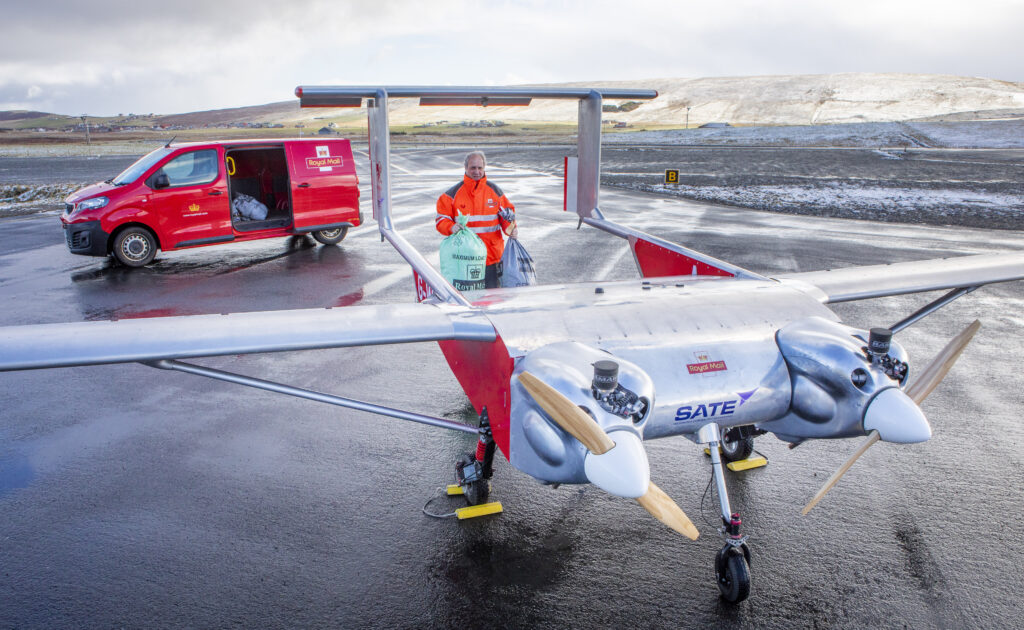Royal Mail has unveiled its plans to scale up its use of drone technology and create more than 50 new postal drone routes over the next three years. The plans are part of a new partnership with logistics drone company Windracers.
The partnership will facilitate and operate unmanned aerial vehicles (UAVs) to provide faster and more convenient services for customers in remote communities.
UAVs can help further reduce Royal Mail’s carbon emissions and improve the reliability of island mail services, which currently use ferries, conventional aircraft and land-based delivery.
The first routes identified for the new service include the Isles of Scilly, Shetland Islands, Orkney Islands and the Hebrides.
Subject to Civil Aviation Authority (CAA) approval, Royal Mail is aiming to secure more than 50 drone routes supported by up to 200 drones over the next three years. Longer term, the ambition is to deploy a fleet of more than 500 drones servicing all corners of the UK.
Royal Mail has already conducted four drone trials over the last 18 months including flights on the Isle of Mull in Scotland, on the Isles of Scilly off the Cornish coast and between Kirkwall and North Ronaldsay, on the Orkney Islands.
The latest trial was held in April on the Shetland Islands in partnership with Windracers. Test flights for the new service saw Royal Mail deliver mail between Tingwall Airport in Lerwick to Unst – a 50-mile (80km) flight each way. Unst has a population of around 630 people and is Britain’s most northerly inhabited island.
With a capability to fly in difficult weather conditions, the twin-engine UAV used in the trial has a wingspan of 10m and incorporates an autopilot system. They can carry up to 100kg of mail of all shapes and sizes for two daily return flights between the islands. Letters and parcels are then delivered by the local postal worker. The trial was part of the Sustainable Aviation Test Environment (SATE) project funded by UK Research and Innovation (UKRI) through the Industrial Strategy Challenge Fund.
Simon Thompson, CEO at Royal Mail, said, “On time delivery regardless of our customers’ location or the weather, while protecting our environment, is our goal. Even though we go everywhere, Royal Mail already has the lowest CO2 emissions per parcel delivered, this initiative will help reduce our emissions even further.”
Stephen Wright, chairman at Windracers Group, said, “The middle mile of supply and logistics, especially to remote locations, has long been overlooked by the industry and is ripe for innovation. We’ve spent the last five years focused on developing the most commercially viable essential logistics drones so we’re truly delighted to be working with Royal Mail on this ambitious and pioneering deployment of autonomous aircraft. It puts the UK firmly at the forefront of this exciting sector.”


